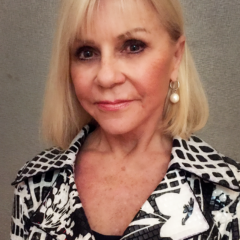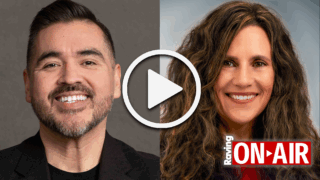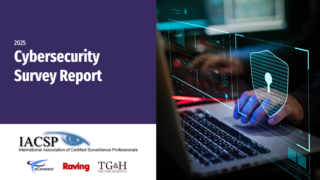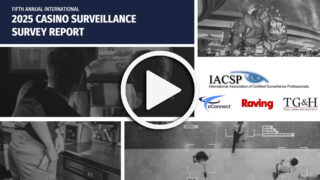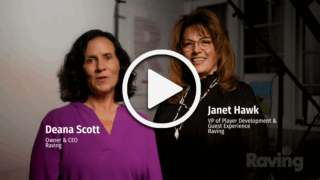
Results from Raving’s 1st Annual Tribal Gaming National Marketing Survey
Raving recently released its first national study of casino marketing. The main objective of the study is to give casino marketers a tool they can use to be more successful. By finding out what other casinos are doing with mobile marketing, reinvestment ratios, promotions, or a wealth of other data, it can help you see where you fall on the spectrum, and maybe where you need to be headed. Casinos in the study are from all areas of the U.S. and range in size from mega resorts to small properties with less than 250 machines. Whether you’re with a tribal or commercial casino, the results from this study are a tool to help and inform you.
One of the questions that we asked the 53 casinos participating in the survey was what types of market research they’re conducting. This is an important topic because research produces business intelligence that can give casinos a competitive edge. If other casinos in your market have better intelligence than you have, then they’re armed to make better decisions.
The chart on the opposite page shows what percent of casinos are doing each type of research listed below:
Database Analysis: 91% of casinos
This is a type of research that uses information you’ve collected from players to perform statistical analysis so that you can better understand your customers and their behavior. Almost all casinos are analyzing the data from gaming and other business transactions (restaurants, entertainment, etc.). This research is typically performed on an ongoing basis by an in-house database analyst.
Benefits: Having accurate database analysis is what makes many marketing programs possible. It’s the basis of mail programs, club tiering, couponing, and much more.
Guest Satisfaction Survey: 79% of casinos
This is one of the best ways to listen to the all-important Voice of the Customer (VOC) by measuring how your customers rank every aspect of your property. These are a report card for your property. Guest Satisfaction Surveys can pinpoint problems and measure how serious they are, and also show you what your customers rank highly so that you know where to focus your efforts. Some casinos are conducting Satisfaction Surveys by using online software and in-house staff, but most retain outside resources.
Benefits: This type of survey can reduce customer churn, increase customer lifetime value, and reduce negative word-of-mouth.
Competitive Analysis: 61% of casinos
Knowing what your competitors are doing, how they’re doing it, and how well they are doing it compared to your property is vital information. This analysis determines their strengths and weaknesses relative to your property’s. Most casinos do at least some monitoring of the competition inhouse – signing up for their direct mail, clipping ads, and checking out their social media and promotions. You can also structure this by a professional, objective review from a researcher.
Benefits: Formulate a better marketing strategy and plan by leveraging what your property is doing best, and improve key areas that are your weaknesses.
Feedback Surveys: 48% of casinos
Feedback surveys cover a range of categories, but the common thread is that they are all designed to gather feedback from users of products, services, experiences and programs. For casinos, this might be a post-promotion evaluation, hotel stay follow-up, players club evaluation, or just about anything that you’re doing that can be evaluated by your customers. Some casinos are using online survey software to conduct these surveys in-house, and others are contracting this out.
Benefits: Knowing how your customers evaluate your marketing initiatives allows you to adjust and improve, which increases efficiency and profitability.
Branding & Awareness: 45% of casinos
Branding Surveys; Attitude, Awareness & Usage (AAU), whatever you call them, these surveys take stock of your market and give you an opportunity to thoroughly review your product or service within its marketplace so that you can understand its appeal, strengths, weaknesses, and any gaps in the offering. It also gives you insights regarding brand perception, and helps you evaluate how your product is known and perceived within the market. These surveys are usually conducted by a professional firm every two to three years, and brief, targeted surveys can fill in the knowledge gaps between surveys.
Benefits: This measures how well your brand is performing against competitors, as perceived by your customers, so you can increase performance in areas that count with customers.
Employee Engagement Surveys: 41% of casinos
This type of survey gained popularity in the 1990s to measure a relationship that goes beyond employee satisfaction; an “engaged employee” is one who is fully absorbed in and enthusiastic about their work, and takes positive action to further the organization’s reputation and interests. An engagement survey is usually done annually or every other year by an outside research company.
Benefits: Knowing how to increase engagement leads to employees who care more, are more productive, give better service, and even stay in their jobs longer. All of that leads to happier customers, who buy more and refer more often, which drives sales and profits higher.
Focus Groups: 41% of casinos
A focus group is a form of qualitative research in which a group of people are asked about their perceptions, opinions, beliefs and attitudes towards a product, service, concept, advertisement, idea or packaging. Quantitative research answers “how many,” and qualitative research answers the “how” and “why.” The group members are carefully selected and are led through a specific agenda by a skilled moderator. Some casinos conduct their own informal focus groups, while other casinos bring in a professional research company.
Benefits: Quantitative research may indicate an area where you need to understand why you’re getting a certain result. Focus groups let you drill down and find out why you’re seeing certain findings. They can also be used to pretest your customers before making major changes.

